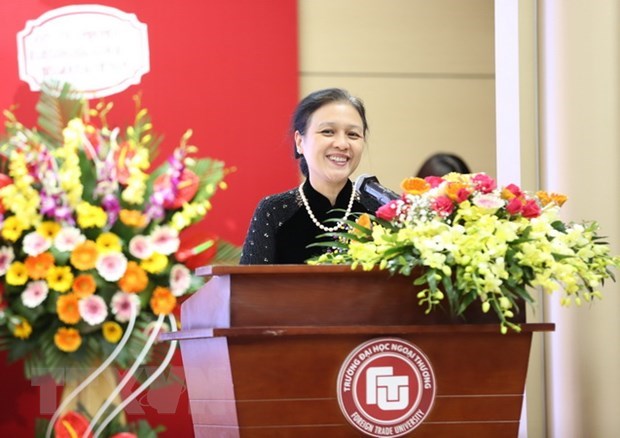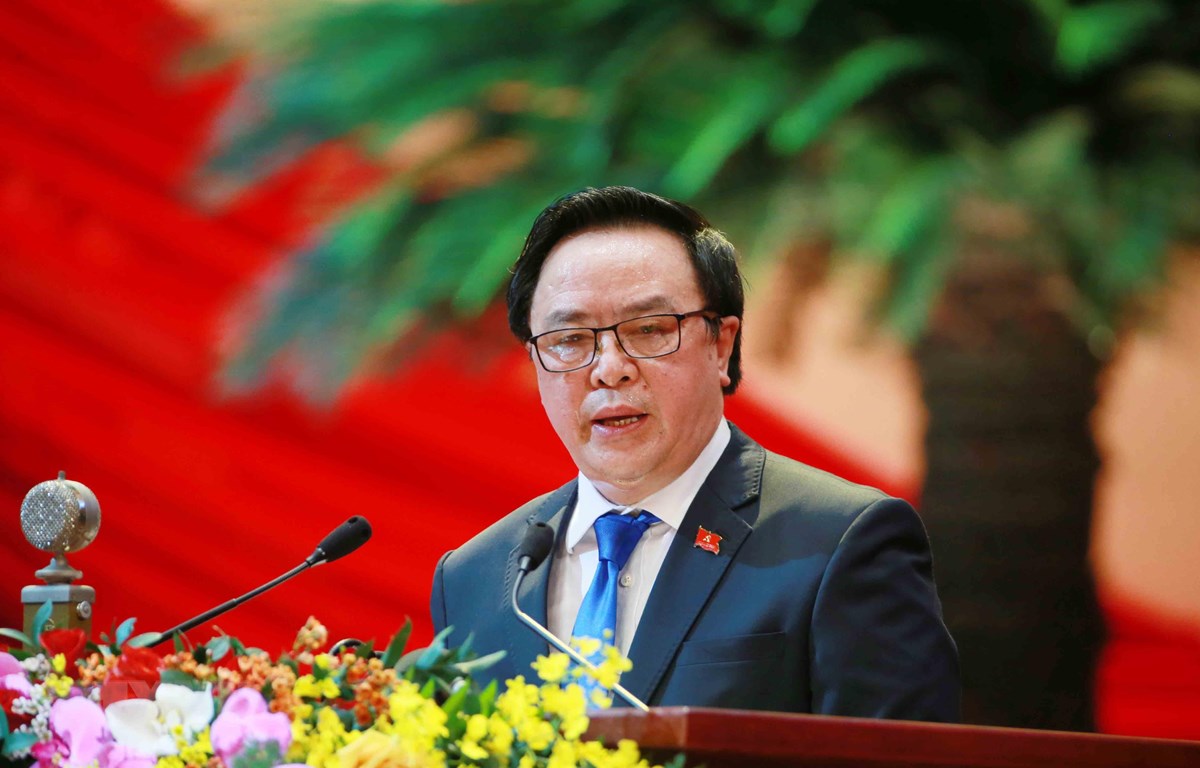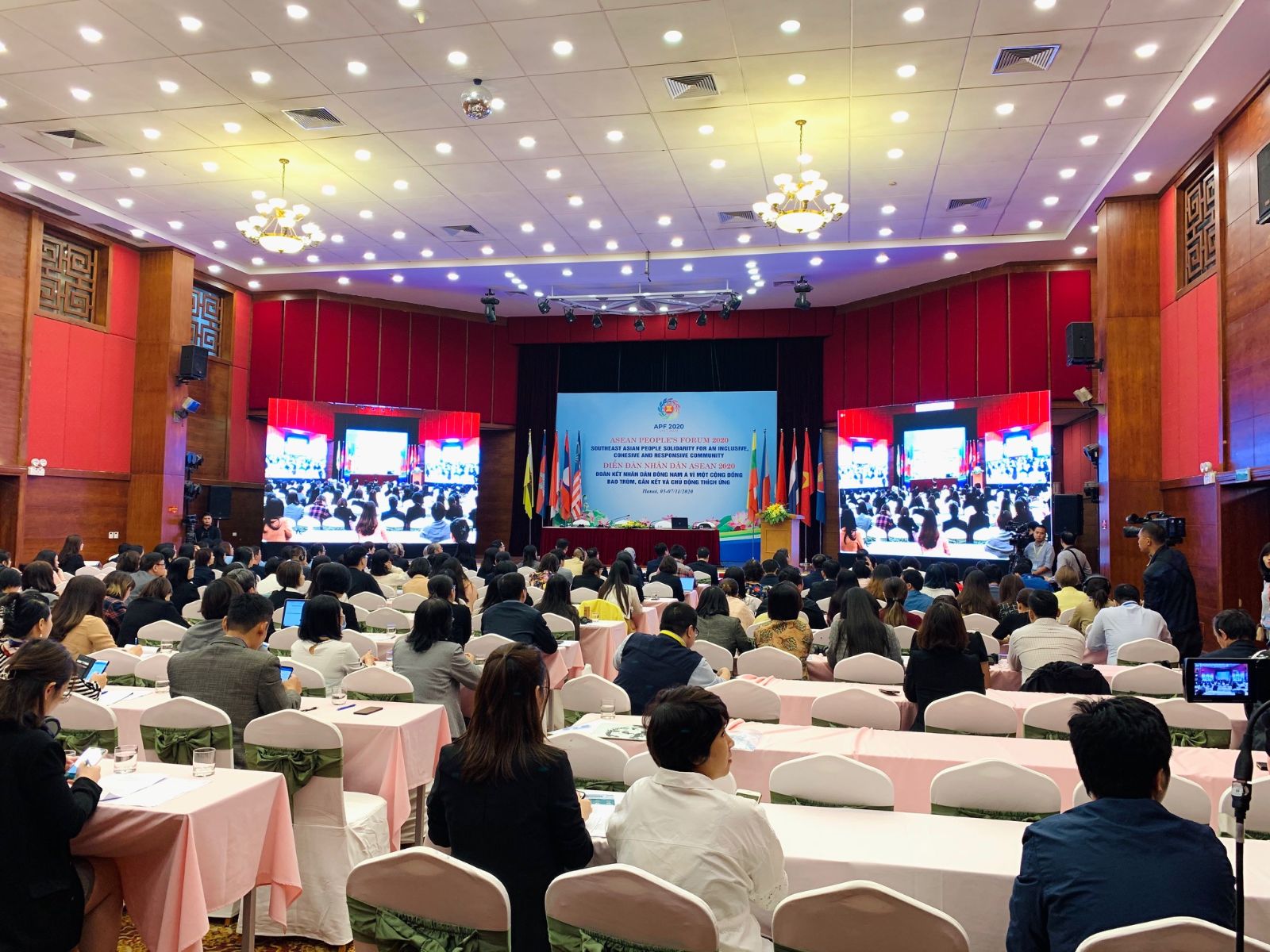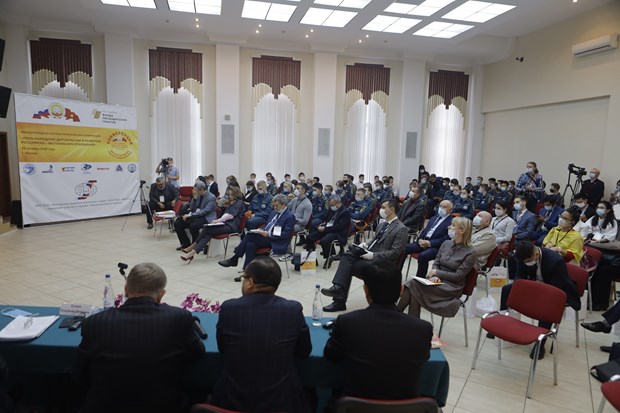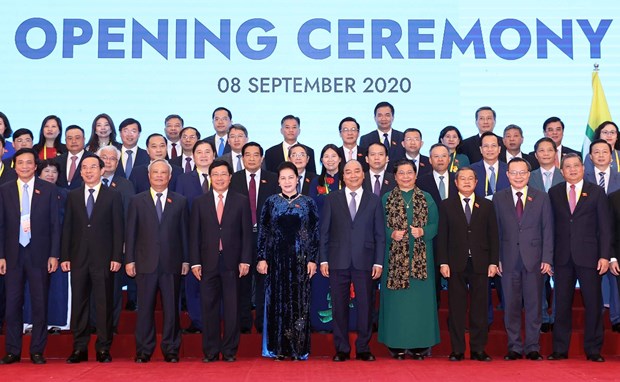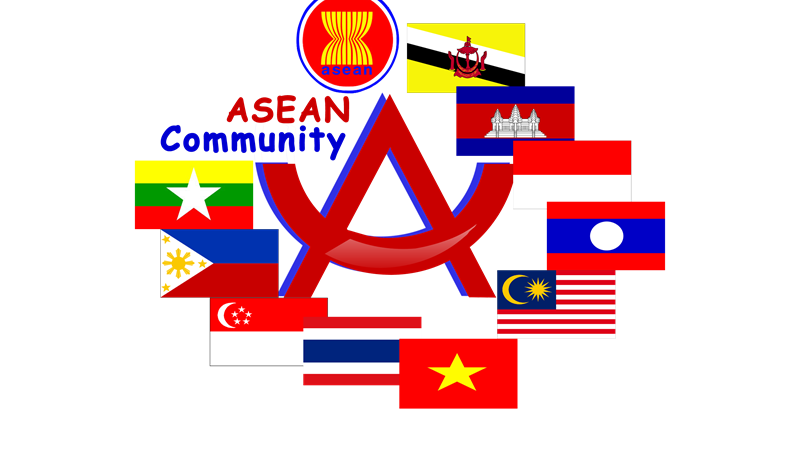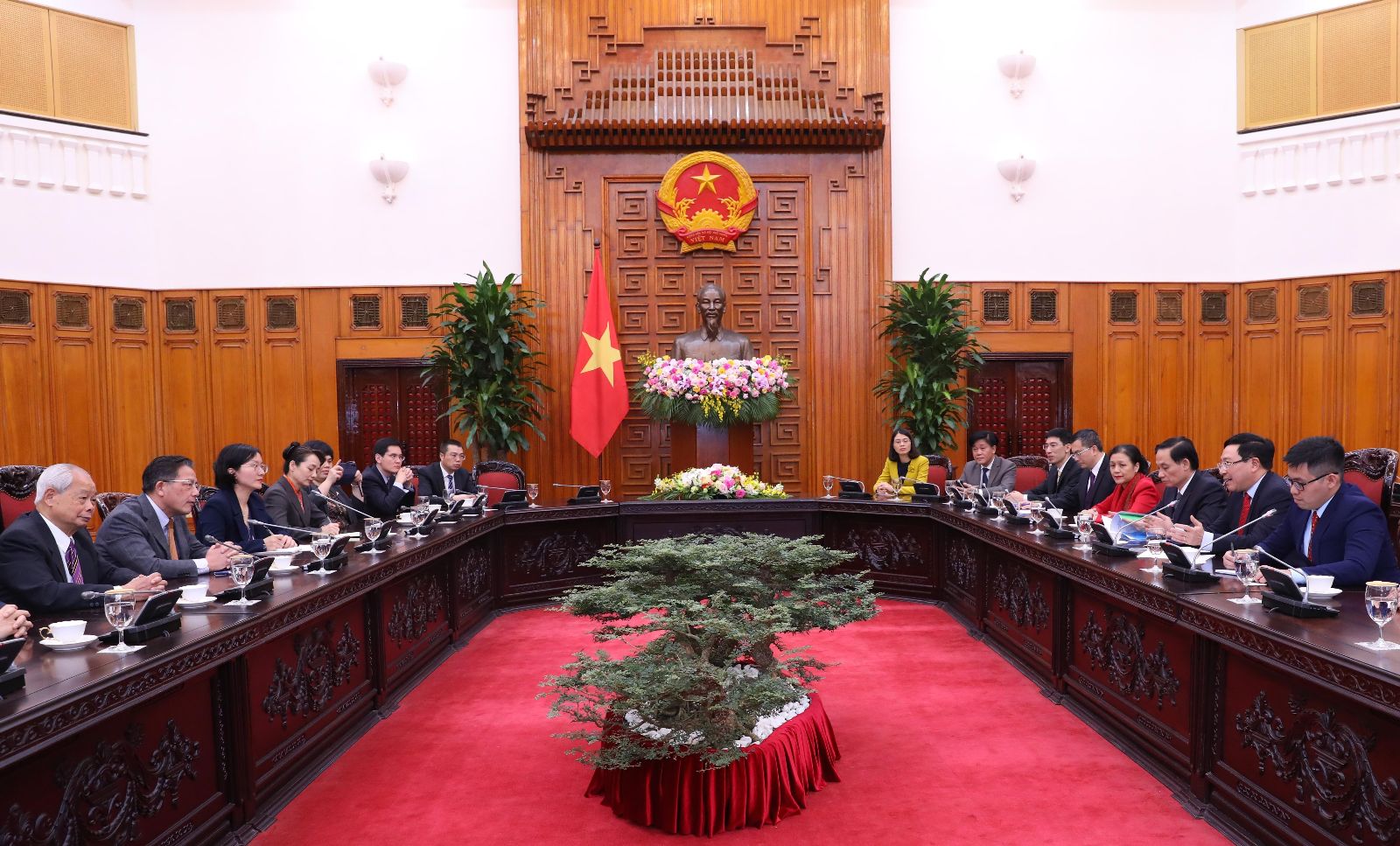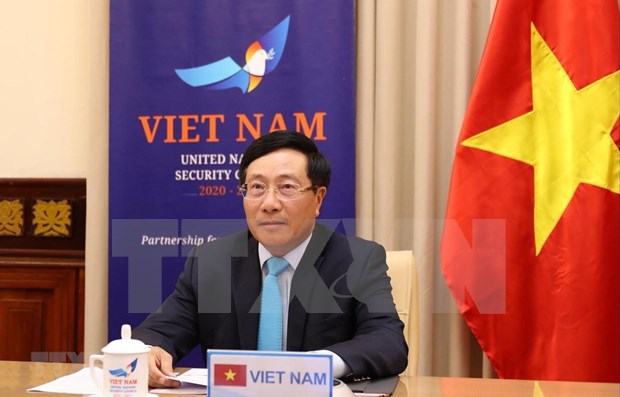
Deputy Prime Minister, Foreign Minister Pham Binh Minh
| In an article marking the 45th anniversary of bilateral diplomatic ties (1975-2020), the Deputy PM wrote that the anniversary of the establishment of diplomatic relations provides an opportunity for the two countries to review their journey of cooperation and consolidate their trust in the bright future of Vietnam-Germany relations. Vietnam and Germany established their diplomatic relations in 1975; however, the link between the peoples had formed long beforehand. From the middle of the 19th century, the first German emissaries were sent to Saigon (now Ho Chi Minh City) to establish diplomatic ties. A century ago, on his journey to seek a way to liberate the nation, young patriot Nguyen Ai Quoc stopped in Germany. Later, President Ho Chi Minh continued worked to cultivate the friendship between the peoples of the two countries. More than 100,000 Vietnamese people once studied and worked in Germany during the 1950s, mastering the German language and culture. Together with the community of 170,000 Overseas Vietnamese in Germany today, they have contributed to fostering bilateral relations. Over the past 45 years, Vietnam - Germany relations have always displayed enduring and robust vitality thanks to the close cooperation in all spheres of politics, diplomacy, economy, and culture. Delegation exchanges have taken place vibrantly at high levels, including the ministerial level, as well as between branches and localities of the two countries. Diplomatic activities of the Party and National Assembly, and people-to-people exchanges between the two countries have been increased. Consensus and documents reached through the visits of high-ranking leaders of the two countries have served as an important lever for deepening bilateral cooperation. In particular, the Hanoi Declaration on the establishment of the Vietnam – Germany strategic partnership, which was signed on the occasion of German Chancellor Angela Merkel’s visit to Vietnam in October 2011, marked an important milestone in the acceleration of bilateral ties. Many cooperation mechanisms, such as the strategic management group, the high-level economic dialogue, the Political Consultation, the Rule of Law Dialogue, Committee on Science and Technology Cooperation have been activated and expanded, ensuring efficiency and quality in all aspects of cooperation. Vietnam-Germany economic relations have posed huge potentials and developed dynamically. Germany is Vietnam’s largest trading partner in Europe. Two-way trade turnover has doubled since 2010 to reach more than US$10.24 billion in 2019, with an annual increase of over 10%. The Vietnam - EU Free Trade Agreement (EVFTA) and the Vietnam - EU Investment Protection Agreement (EVIPA) have come into operation, promising to create great new opportunities for businesses of the two countries to boost their trade and investment links. As of May 2020, Germany has 361 valid projects in the country, with total registered capital of over US$2 billion, ranking 18th out of the 132 countries and territories investing in Vietnam. To date, Vietnam has invested in 35 projects in Germany, at a total value of more than US$250 million, in the fields of finance - banking, information technology, restaurants, hotels. In terms of development cooperation, Vietnam always treasures the valuable support of the German Government and people in Vietnam’s construction and development efforts. Over the past three decades, Germany has provided more than US$2 billion for ODA projects in Vietnam. Germany has worked side by side with Vietnam in many cooperation programmes on economic reform, forestry development, the building of green growth strategy, and vocational training. The lessons and experiences learnt from Germany have helped Vietnam to complete policy mechanisms, accelerate socio-economic development, protect the environment, and enhance human resource training, thereby contributing to supporting the country in realising the UN Millennium Development Goals (MDGs) and the Sustainable Development Goals (SDGs). Bilateral cooperation in education, scientific research, law, culture and tourism has also witnessed remarkable achievements. The Vietnam - Germany University is about to be completed and will serve 12,000 students. Following the German model of universities, it promises to become a "magnet" attracting students both at home and abroad. The teaching of the Vietnamese and German languages at schools in the two countries has been encouraged. In addition, exciting cultural exchanges, such as film festivals, concerts, exhibitions of paintings and photos, and cuisine and sporting events have brought the people of Vietnam and Germany closer together. The direct flight route linking the two nations, which opened more than 15 years ago, brings tens of thousands of German tourists to Vietnam every year, as well as a similar number of Vietnamese to Germany. Vietnam and Germany have closely coordinated and supported each other at international and regional forums such as the United Nations, the Asia-Europe Meeting (ASEM) and the ASEAN-EU cooperation mechanism. In 2020, both Vietnam and Germany hold important positions at multilateral forums. Both countries are serving as non-permanent members of the United Nations Security Council for the 2020-2021 term, Vietnam is holding the ASEAN Chairmanship 2020 while Germany is assuming the rotating EU presidency in the latter half of the year. The two sides agreed to promote cooperation and seize opportunities to strengthen Asia-Europe connections and maintain peace and stability in the two regions, thus contributing to the security and development of the world. Looking back at the history of the bilateral relationship over the past four decades, we are delighted and proud of the dynamic and substantial development of the Vietnam-Germany strategic partnership. The encouraging results and enormous potential for cooperation are important driving forces for a deeper, stronger and more comprehensive cooperation of the two countries in the coming decades, in accordance with the interests and aspiration of the governments and peoples of the two countries, for a peaceful, stable and prosperous world. NDO |


